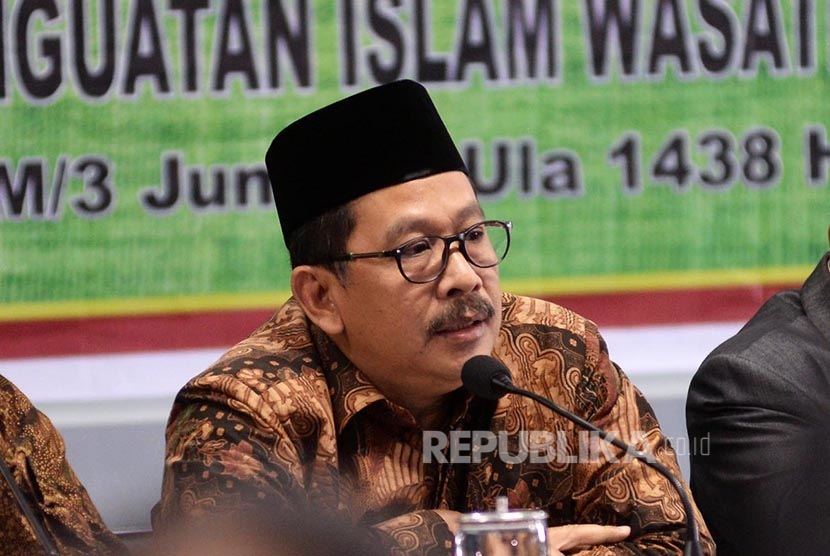REPUBLIKA.CO.ID, JAKARTA -- Indonesian Ulema Council (MUI) commented on National Mandate Party (PAN) Honorary Council Amien Rais statement about God party (hizb Allah) and devil party (hizb syaithan) in Alquran. MUI deputy chairman Zainut Tauhid Saadi said in the Quran, Surah Al Mujadilah verse 19-22 explained the existence of two groups of people, namely devil class (hizb as-syaithan) and Allah class (hizb Allah).
According to him, devil's class is a group of people always lie, forget to remember God, and like to oppose Allah SWT and the prophets. People who are into the group called as the losers.
Meanwhile, God's class is called as people who believe in Allah SWT and the day of judgment, those who inculcate faith in their hearts and strengthen them with the help that comes from God. People who fall into that category are called the lucky ones.
Zainut asserted in the context of the verses were not related to political context. He said it is not appropriate to link the verses with the context of political parties in Indonesia.
"The context of the verses are more on the transcendental meaning, which is about aqeedah and belief in Allah SWT, not in political context," said Zainut on Monday (April 16).
Also read: Amien Rais' statement not referring to specific party: IKAMI
However, Zainut believed Amien did not have the intention to link the verses with politics. Regarding the emergence of controversy over the statement, he urged all political elites to be wise in delivering message to the public, especially when quoting the Quran or other religious teachings.
Zainut called on political elites to avoid the allegations of religious politicization or religious exploitation for political purposes. "Above all. we have to avoid the emergence of misunderstandings, conflicts and commotion in the society," he said.



